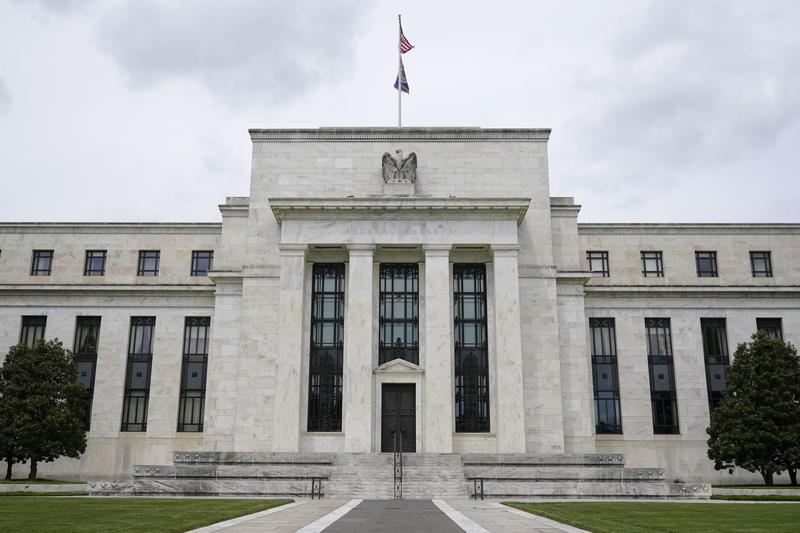 This May 4, 2021, file photo shows the Federal Reserve building in Washington, the United States. (PATRICK SEMANSKY / FILE / AP)
This May 4, 2021, file photo shows the Federal Reserve building in Washington, the United States. (PATRICK SEMANSKY / FILE / AP)
WASHINGTON - The US Federal Reserve is expected to announce a half-percentage-point interest rate hike to combat surging inflation on Wednesday, as a growing number of economists now worry that the country could be headed for a recession.
According to the CME Group's Fedwatch tool, investors are betting that there is a 99.6-percent chance of a 50-basis-point rate hike at the Fed's May 3-4 policy meeting.
The move, which would put the federal funds target rate range at 0.75 percent to 1 percent, would be the first half-point increase since 2000.
US personal consumption expenditures price indexes, the Fed's preferred inflation measure, soared by 6.6 percent in March over the past year, well above the Fed's 2-percent inflation target, the Commerce Department reported last week
It is appropriate for the Fed to "move a little more quickly" amid surging inflation and accommodative monetary condition, Fed Chair Jerome Powell said in a panel discussion during the 2022 Spring Meetings of the International Monetary Fund and the World Bank on April 21.
"Certainly we make these decisions at the meeting and we'll make it meeting by meeting, but I would say that 50 basis points (rate hike) will be on the table for the May meeting," Powell said, sealing expectations for a 50-basis-point rate hike for the May meeting.
Powell's remarks came a week after the Labor Department reported that the US consumer price index (CPI) in March continued to rise at the fastest annual pace in four decades, surging 8.5 percent from a year earlier. That followed a 7.9 percent year-on-year gain in February.
US personal consumption expenditures (PCE) price indexes, the Fed's preferred inflation measure, soared by 6.6 percent in March over the past year, well above the Fed's 2-percent inflation target, the Commerce Department reported last week.
In mid-March, the Fed raised its benchmark interest rate by a quarter percentage point to a range of 0.25 percent to 0.5 percent from near zero amid persistently high inflation. This marked its first rate hike since 2018 and a major step in exiting from the ultra-loose monetary policy enacted at the start of the pandemic.
READ MORE: How high is too high for the Fed?
Since the March policy meeting, a flurry of comments from Fed officials indicated that the urgency for rate hikes is growing, and the central bank is prepared to take more aggressive actions going forward.
According to the minutes of the Fed's March policy meeting released last month, many participants noted that one or more 50 basis point increases in the target range could be "appropriate" at future meetings, particularly if inflation pressures remained elevated or intensified.
The minutes also showed that the Fed could soon begin reducing the size of its 9 trillion dollar balance sheet, with officials signaling their support for a monthly caps of $95 billion, a much faster pace of decline in securities holdings than over the 2017-19 period.
ALSO READ: US monetary policy harms global economy
As the Fed tries to rein in surging inflation with faster rate hikes, the risk of an economic recession is growing.
"A recession at this stage is almost inevitable," former Fed vice-chair Roger Ferguson told CNBC in an interview Monday, noting that the central bank won't be able to address the supply side of the issue, which is driving most of the inflation problem.
Gary Hufbauer, a former US Treasury official and nonresident senior fellow at the Peterson Institute for International Economics, told Xinhua that there's no historical experience that suggests with such high inflation, the Fed is able to bring inflation down to its 2-percent goal without a recession.
"We're gonna have a recession," Hufbauer said, noting that the only question is when the recession really starts.
"I think by the end of this year, say in the fourth quarter of 2022, in the first quarter of 2023, a recession is very likely," Hufbauer said.


